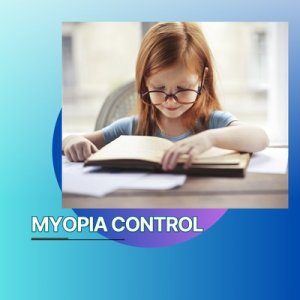What is Myopia?
Myopia, or short-sightedness, occurs when light entering the eye is focused in front of the retina rather than directly on the retina. This causes blurred distance vision. The more myopia you have, the closer you have to be to see an object clearly.
You are more likely to be myopic if you have at least one myopic parent however up tp 60% of patients with high myopia do not have a family history of the condition.
Myopia progresses most rapidly in the early stages, so starting treatment as early as possible will give the best opportunity for a positive outcome. In the majority of cases myopia progression will naturally stop in their mid-twenties.
Myopia Control


